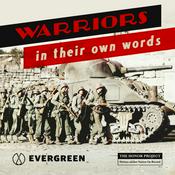On Easter Sunday, April 2, 1972, two EB-66 aircraft, call signs Bat 21 and Bat 22 were flying pathfinder escort for three B-52s, which were assigned to bomb the two primary access routes to the Ho Chi Minh Trail through Laos. Gene Hambleton, a navigator aboard Bat 21, was shot down behind North Vietnamese lines. His rescue became known as the largest, longest, and most complex search-and-rescue operation during the Vietnam War. In this episode, Gene Hambleton recounts his dramatic story.
Learn more about your ad choices. Visit megaphone.fm/adchoices



